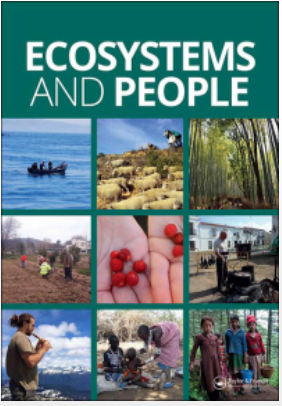Community listening sessions: an approach for facilitating collective reflection on environmental learning and behavior in everyday life
IF 3.7
Q1 Agricultural and Biological Sciences
引用次数: 3
Abstract
ABSTRACT Collaborative research approaches can promote social learning by curating a structure that facilitates inclusive dialogue and reflection. Within an epistemological frame that upholds notions of emergence rather than extraction, such modes can foster collective reflection in ways that contribute to reversing traditional notions of expertise. In this paper, we describe ‘Community Listening Sessions’, an approach drawing on focus group, learning circle, and participatory research literature. We developed Community Listening Sessions to study the interactional contexts of environmental learning – an inherently social, collective process. In our initial application, through 14 listening sessions hosted across the San Francisco Bay Area (California, USA), we engaged more than 100 community members in discussing how they learn about and take action related to the environment in their daily lives. We make recommendations for future use of Community Listening Sessions for collecting qualitative data in a participatory, equitable way in what can be challenging, high-social-cost discussions, yet those that are critical for addressing issues such as climate change, biodiversity loss, socio-environmental justice, and others that are essential to the future of our species and planet.社区聆听会议:一种促进对日常生活中环境学习和行为的集体反思的方法
协作研究方法可以通过策划一个促进包容性对话和反思的结构来促进社会学习。在一个支持涌现而非提取概念的认识论框架内,这种模式可以促进集体反思,从而有助于扭转传统的专业知识概念。在本文中,我们描述了“社区倾听会议”,这是一种借鉴焦点小组、学习圈和参与式研究文献的方法。我们开发了社区聆听会议来研究环境学习的互动背景-一个内在的社会,集体的过程。在我们最初的申请中,通过在旧金山湾区(美国加利福尼亚州)举办的14场听力会议,我们邀请了100多名社区成员讨论他们在日常生活中如何了解和采取与环境相关的行动。我们建议未来使用社区倾听会议,在具有挑战性、社会成本高的讨论中以参与性、公平的方式收集定性数据,但这些讨论对于解决气候变化、生物多样性丧失、社会环境正义等问题至关重要,这些问题对我们物种和地球的未来至关重要。
本文章由计算机程序翻译,如有差异,请以英文原文为准。
求助全文
约1分钟内获得全文
求助全文
来源期刊

Ecosystems and People
Agricultural and Biological Sciences-Ecology, Evolution, Behavior and Systematics
CiteScore
7.80
自引率
11.30%
发文量
40
审稿时长
42 weeks
期刊介绍:
Ecosystems and People is an interdisciplinary journal that addresses how biodiversity and ecosystems underpin human quality of life, and how societal activities and preferences drive changes in ecosystems. Research published in Ecosystems and People addresses human-nature relationships and social-ecological systems in a broad sense. This embraces research on biodiversity, ecosystem services, their contributions to quality of life, implications for equity and justice, and the diverse and rich ways in which people relate to nature.
 求助内容:
求助内容: 应助结果提醒方式:
应助结果提醒方式:


